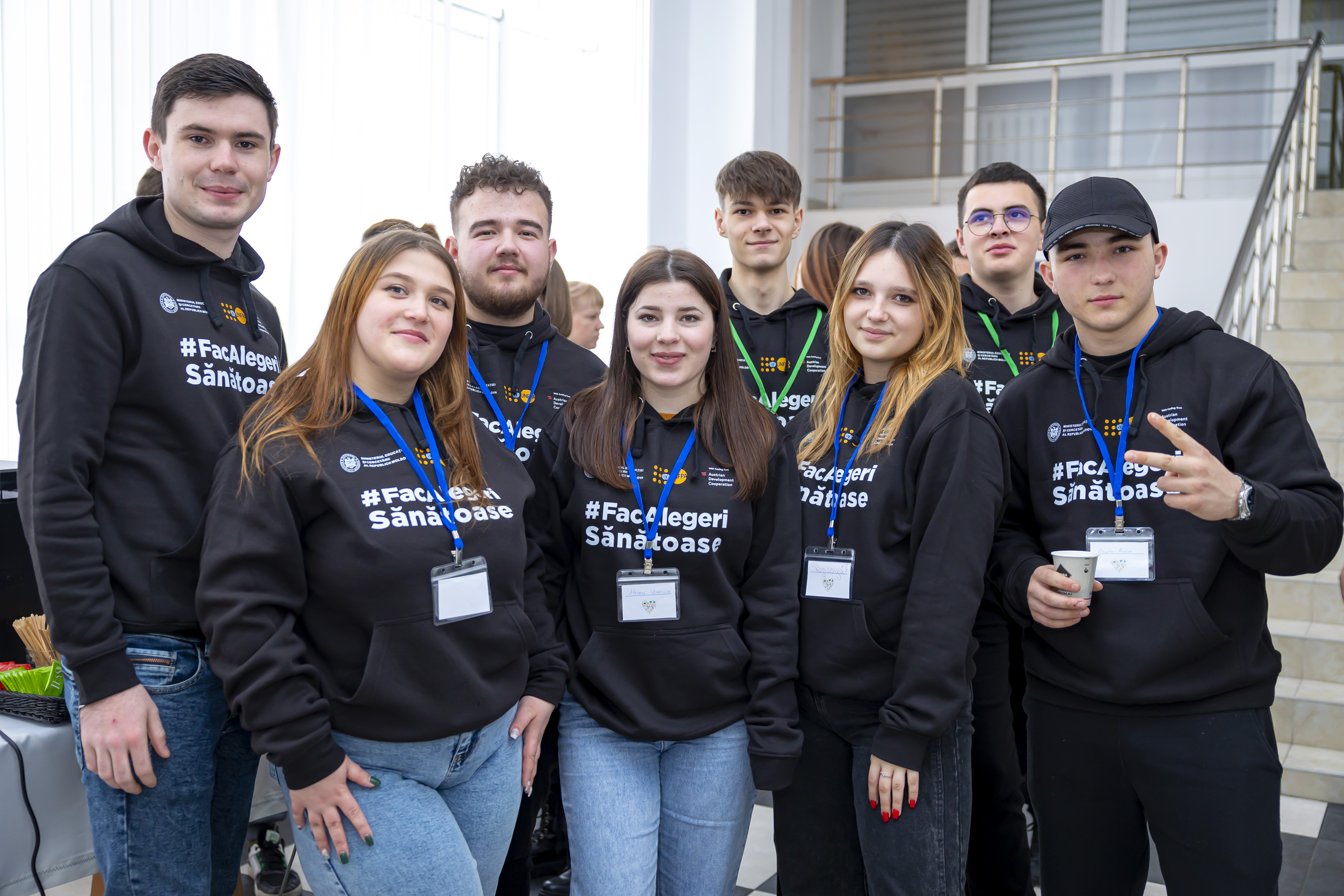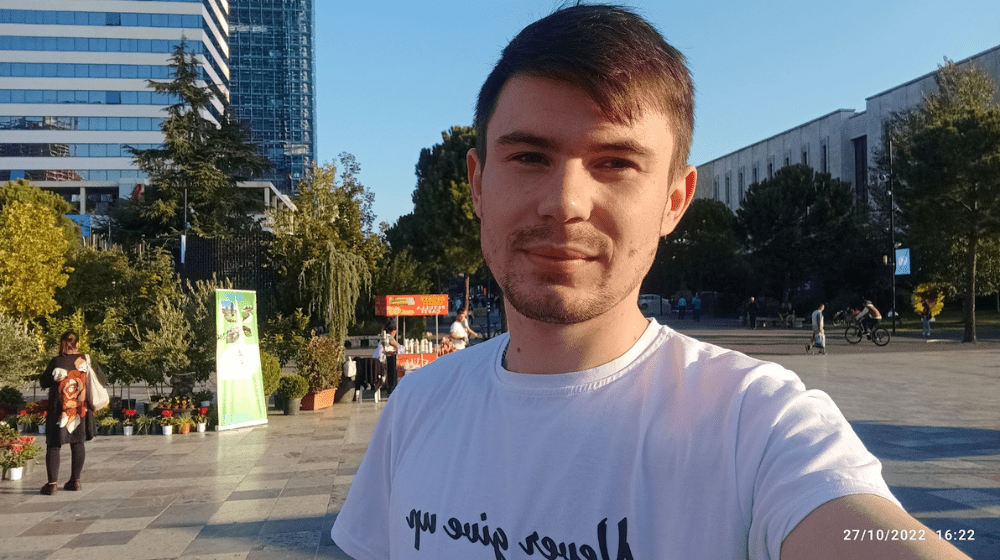Effective communication, empathy, critical thinking, problem-solving and quick decision-making abilities, emotion management and teamwork skills are just some of the soft skills in addition to the technical skills that helped Grigore Tuhar find a job while still a student. The young man is 21 years old and has recently graduated from the Bălți Polytechnic College. He is passionate about technology and plans to continue his studies at one of the country’s universities. Grigore is a former chairman of the National Council of Vocational Education Students and a peer educator and currently works for a local company providing electronic communications services.
During his four years of study, the young man has learnt that his success in the professional world depends not only on technical and theoretical knowledge, but also on social skills such as communication, negotiation and critical thinking. Grigore says he developed these skills through various informal activities, as well as thanks to the Decisions for a Healthy Lifestyle course he took in college
Supported through a programme of the Ministry of Education and Research, the United Nations Population Fund (UNFPA) and the Austrian Government, the Decisions for a Healthy Lifestyle course lays the foundations for young people’s emotional intelligence, helping them make a smoother transition to adulthood.
To date, thanks to this course and other activities under the programme “Connecting youth to the job market through life skills development”, more and more students and graduates of vocational schools across the country are prepared to cope with the complex demands at the workplace.
Data from UNFPA’s 2022 KAP Survey of TVET Students’ Knowledge, Skills and Practices confirms that students who attended the Decisions for a Healthy Lifestyle course are better prepared for employment. Their ability to communicate and work in teams, including with people of different abilities and in different settings, has almost doubled from 11% in 2020 to 19% in 2022. What’s more, students say the course has made them more confident in interpersonal relationships.
“I went from being a reserved person to an outgoing, empathetic and open-minded colleague. I have learnt to express myself freely and respectfully, be persuasive, listen and understand the needs of others. I can manage stress and find constructive solutions in tense moments. My confidence in my own strengths and abilities helped me to present myself well and without emotion at the job interview,” says Grigore.
“My volunteering and civic engagement helped a lot in getting the job”
Along with the skills he learnt in his college classes, Grigore also engaged in informal activities, including volunteering, which helped him in his development. He learnt to take more responsibility and manage his time effectively to achieve results. The informal educational projects and activities he participated in as a volunteer and peer educator developed him as a person and gave him the desire to learn more and set higher goals.
“My experience as an educator boosted my confidence and encouraged me to become more involved in various extracurricular activities. Volunteering and civic engagement have also been very valuable in my employment process. Before graduating, I sent my CV to several companies and one of them contacted me. At the interview, they told me that my volunteer experience is invaluable,” says Grigore.

“Comprehensive reproductive health education is essential for young men and women”
Grigore believes that today’s young people have access to a lot of information, but it is the comprehensive education received at school and participation in extracurricular activities that can prepare young people for real life. The young man especially values education on sexual and reproductive health, which are still taboo topics in society. Information on anatomy, contraception, prevention of sexually transmitted diseases, as well as communication skills in relationships, prevention of abusive behaviour are all essential for the full development of any adolescent and young person. “A well-rounded education in and out of school shapes an individual capable of succeeding in various areas of their life,” says Grigore.
“Change starts with each of us”
Grigore’s story shows that in order to keep up with today’s professional trends, you need to be able to capitalize on both your professional and soft skills. “I have learnt that employers value employees who are dedicated and committed to continuous self-development. The experience I gained during my four years of study prepared me for the future and gave me the confidence to face any professional and personal challenges,” reiterates the young man.
The young man wants to stay in the Republic of Moldova and develop here, in his own country. He intends to realise several projects that will benefit both himself and the society in which he lives. He firmly believes that every young person who stays in his home country is an important factor for the development of society.
The Network of Peer Educators (NPE) in technical vocational education was established by UNFPA in partnership with Terre des hommes Moldova in 2020. Over 200 students from 12 technical vocational institutions were part of the network between 2020 and 2023. In those four years, NPE educators reached 13,842 adolescents and young people with activities aimed at adopting healthy behaviors. In 2024, the network is expanding, with 20 technical vocational institutions becoming part of it. This expansion is supported by the program “Connecting youth to the jobs through life skills development”, which is implemented by the United Nations Population Fund (UNFPA) and funded by the Austrian Development Agency from the funds of the Austrian Development Cooperation, in partnership with the Ministry of Education and Research of the Republic of Moldova.
Photo source: personal archive


